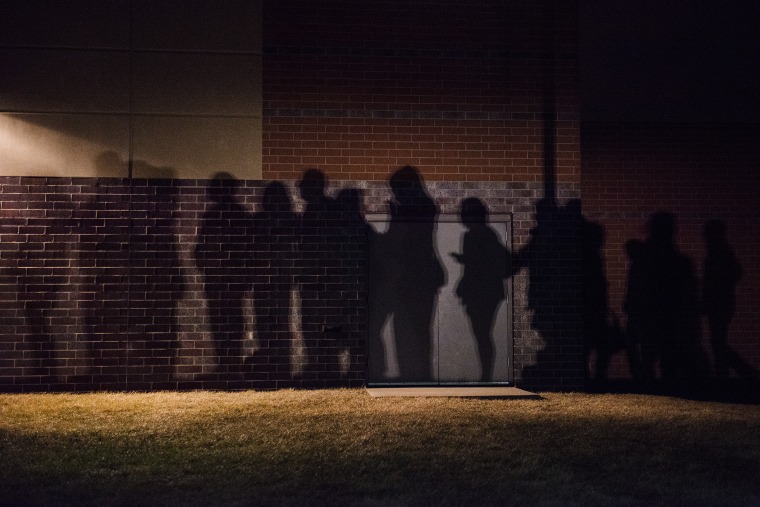As Iowans awaited the results of the Democratic presidential caucus, Pete Buttigieg delivered remarks thanking his supporters and suggesting he'd done very well. "We don't know all the results," the former mayor said, "but we know by the time it's all said and done, Iowa, you have shocked the nation."
And in a way, that was true, but not necessarily in the way Buttigieg intended. The Democratic candidate, of course, meant that Iowans shocked the nation by rallying behind his long-shot candidacy, but in practical terms, Iowa Democrats seem to have shocked the nation by failing to produce results.
The Iowa presidential caucuses were thrown into chaos late Monday after the state Democratic Party said it found "inconsistencies," delaying results and causing widespread confusion across the state.The Iowa Democratic Party said early Tuesday that it would release the results of the Iowa caucuses later Tuesday after "manually verifying all precinct results."Party chair Troy Price said the party is "validating every piece of data we have against our paper trail. That system is taking longer than expected, but it's in place to ensure we are eventually able to report results with full confidence."
As the evening dragged on, state Democratic Party officials insisted there'd been no "hack" or "intrusion." Rather, there were multiple sets of results, and "inconsistencies" emerged between them.
There's apparently a paper trail that will produce accurate tallies -- eventually.
If these unfortunate circumstances sound at all familiar, it's because four years ago, there were related troubles in the wake of the Iowa Democratic caucuses. The initial results pointed to a narrow win for Hillary Clinton, but the final results weren't released until the next afternoon.
Bernie Sanders and his campaign soon after pushed for a more transparent process, and party officials agreed. The result, however, was a different kind of mess.
To be sure, we are expected to get detailed results later today, and I suspect Iowa Democratic Party officials will downplay the importance of the delay. Voters caucused on Tuesday; the public learned about the outcome on Wednesday. There's no need, officials are likely to argue, to make too big a fuss.
That spin will be difficult to accept following the fiasco that unfolded overnight. Indeed, there's already an avalanche of conspiracy theories and ugly accusations, which will probably lead many to question the accuracy of the data once the results are available. For that matter, we're still confronted with the very real possibility of more than one victor because the caucuses will use more than one metric, which may add an additional layer of confusion.
And while the political world waits to see who the big winners and losers were, there can be no doubt that the Iowa caucuses themselves have suffered the most significant defeat. Many voices in Democratic politics have spent years questioning the value of having Iowa go first, and their case is not without merit: the Hawkeye State bears little demographic resemblance to the diverse political party; it's a red-ish state that easily backed Donald Trump and is led by a Republican governor and two Republican U.S. senators; it's never elected an African-American or a Latino candidate to statewide office; and it clings to a caucus system that, among other things, prohibits early voting and secret ballots.
But if the case for abandoning Iowa as the first nominating contest weren't quite compelling enough to force systemic changes, this latest debacle may do the trick. David Plouffe, who ran Barack Obama's 2008 presidential campaign, said on MSNBC last night, "We may be witnessing the last Iowa caucus."
Politico's Tim Alberta wrote what was effectively an obituary. "There can be no doubting it now, not after so many years spent in the crosshairs, not after active presidential candidates began challenging its privileged position atop the nominating calendar, and certainly not after Monday night's debacle that left seven candidates and millions of viewers waiting for results that never came: Iowa's reign is over," it read.
David Yepsen, the Des Moines Register's legendary political reporter, echoed the point. "This fiasco means the end of the caucuses as a significant American political event," Yepsen said. "The rest of the country was already losing patience with Iowa anyway and this cooks Iowa's goose. Frankly, it should."
